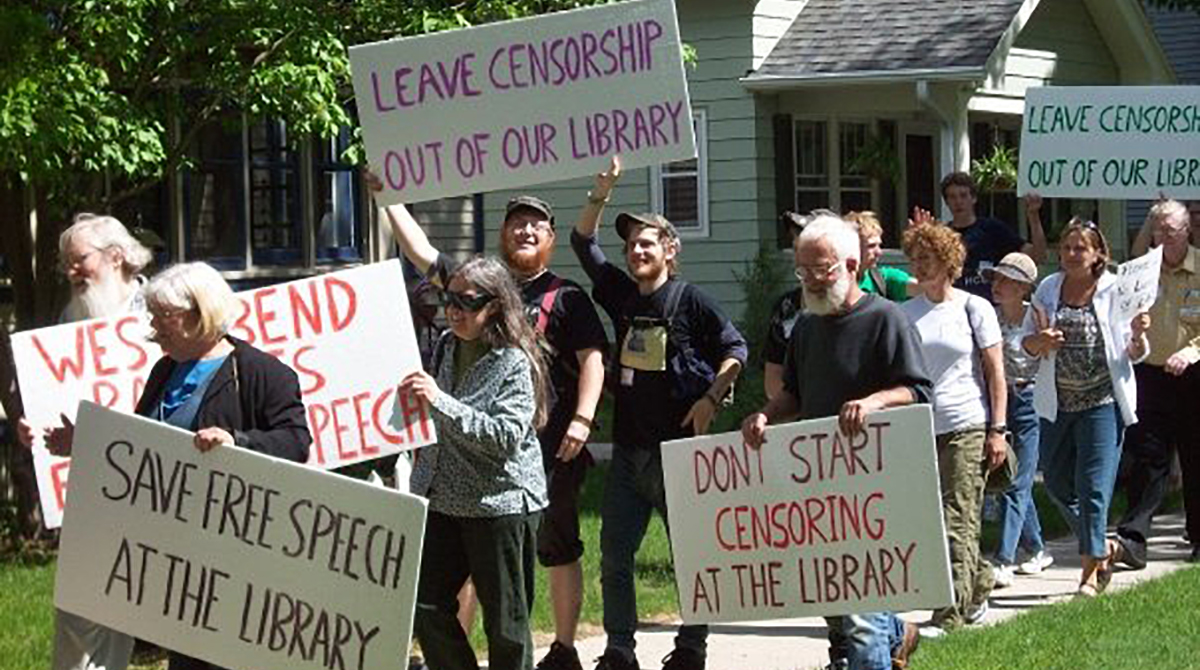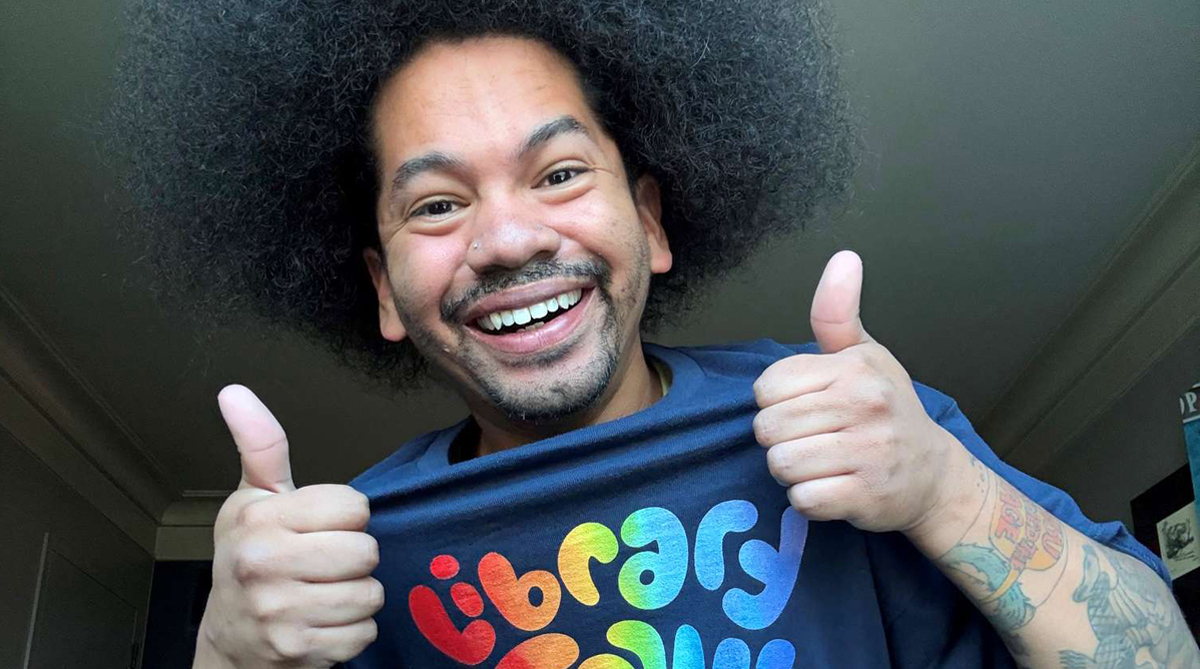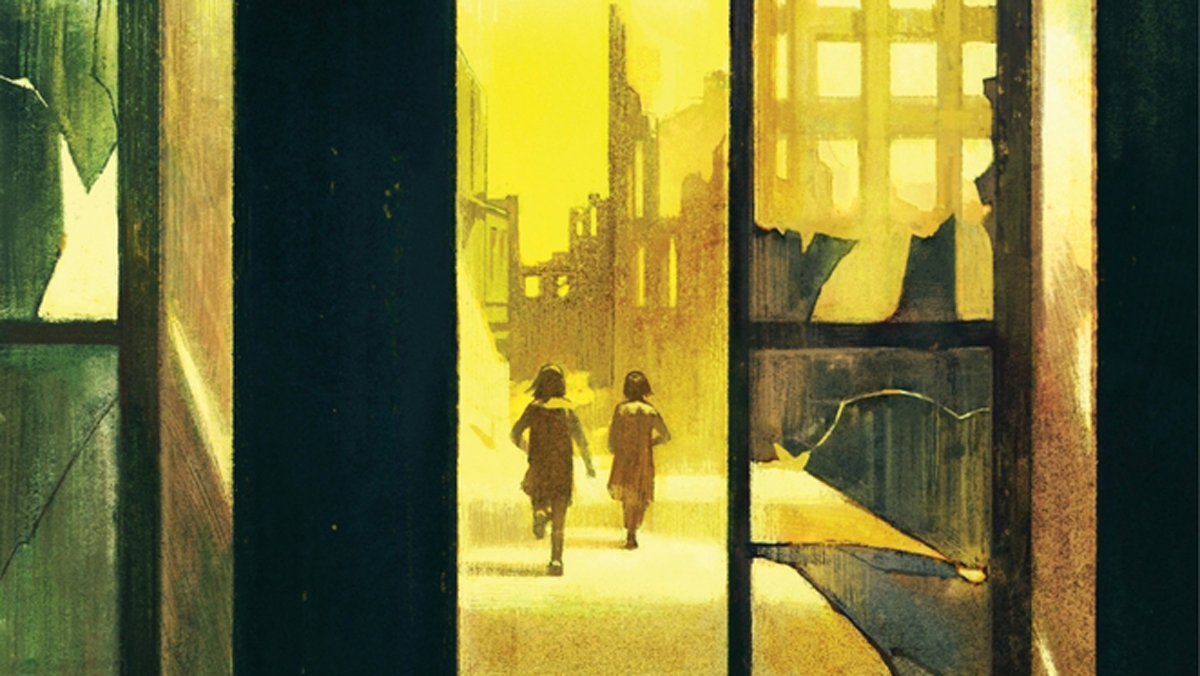This is a guest post by Kristin Pekoll, assistant director of the American Library Association’s Office for Intellectual Freedom.
We often hear about book bans from the perspective of the banners, but these events affect whole communities, particularly library professionals on the receiving end of accusations and threats. I know because it happened to me when I was a librarian serving young adults at West Bend (Wis.) Community Memorial Library.
I’ll never forget the day it started: Tuesday, February 3, 2009. That afternoon, we received a request for reconsideration in our library book drop. It was a complaint about a book list on our website titled, “Out of the Closet” Books for LGBTQ Teens. The list had been online for almost 5 years, and it was frequently used by the local high school’s Gay Straight Alliance, whose members often helped me select titles.
By the end of the week, the front page of the local newspaper read, “Library’s Gay Link Criticized.” From there the issue grew beyond concern about the book list to become a formal challenge in which 37 books were singled out for removal—books the complainants felt were gay “propaganda and encourage[d] and normalize[d] illegal behavior.” (The list grew to more than 85 titles by the time the challenge ended.) For the next five months, my life and my library were the subject of dozens of newspaper articles, letters to the editor, social media opinions, blog posts, FOIA requests, emails, and meetings.
Parents wouldn’t let their teens volunteer for the library’s summer reading program because of me. I received voicemails telling me that I was going to hell; that I had a gay agenda; and that I couldn’t be a good mom because I exposed innocent children to pornography. Did I happen to mention I was pregnant throughout this whole experience? Yeah, I was a first-time mom-to-be going through my first book challenge.
I remember walking out the back door of the library and sitting in my car in the parking lot, sobbing uncontrollably some days. I was loaded with pregnancy hormones and so much stress and fear. Was I going to lose my job? Was I doing the right thing? Was I going to be a bad mom?
Early on in this process, someone recommended that I call the American Library Association (ALA). I did and talked to (my now-colleague) Angela Maycock, who was the assistant director of ALA’s Office for Intellectual Freedom. She helped me gather what I would need to defend the individual titles, especially as the list continued to grow and grow and grow. She provided tools and resources when she could.
Most important, Angela listened to me. I felt so alone and so hurt that members of my own community could have so much hate in their hearts. Those days, I had to be careful about what I said and who I talked to—as did my family, who would get angry on my behalf for the things people would say about me. I felt guilt for putting this on their shoulders. So, I turned to Angela. She listened to me cry. She listened to me vent.
Despite a city council member calling the library a “porn shop” and shake ups that included the removal of four people from the library board, the books were retained.
On June 2, 2009, members of the community met in the elementary school gym—the largest facility we could find as to not violate fire code or open meeting laws. The board listened to comments. Sixty people spoke. Some shared stories about their gay children who never felt accepted. Some called for books to be burned. I presented information about the library floor plan that indicated exactly how many feet apart the toddler board books were from the YA section where the challenged books were located. And Deborah Caldwell-Stone from ALA’s Office of Intellectual Freedom drove up with Angela from Chicago, three hours to the south of West Bend, to talk about the First Amendment.
It was a victory. But despite all our efforts, it never quite felt like we had “won.” Efforts to ban the books continued. The group that wanted to censor the books sponsored a float in the town’s July 4 parade featuring a washing machine and signs that proclaimed, “Your Library is Unclean.” The mayor of West Bend lost the next election, and eventually all the board members were replaced. There was turnover among library staff. Including me.
In 2014, I was offered a job with ALA to do for others what Angela and Deborah had done for me. I listen and I support library workers who are going through similar experiences of censorship and attacks on their profession, skills, and humanity. My family moved to Chicago and started a new chapter. Even though I’m not working in a library, I still consider myself a librarian. I’m still close friends with my queer colleagues from West Bend. I keep in touch with the teens who spoke up in defense of the books and being represented in such a homophobic community. That day in 2009 changed my life. And today I hope I can be of some comfort to others when censorship changes their lives.
Kristin Pekoll is assistant director of the American Library Association’s Office for Intellectual Freedom in Chicago. For 12 years she was the youth librarian at the West Bend Community Memorial Library in Wisconsin. Her primary focus is supporting librarians who are dealing with censorship issues, and she also works to raise awareness of the value of intellectual freedom within the library profession and among the public.
Unite against censorship
There is broad and bipartisan opposition to book removal efforts in both local public libraries and school libraries. People acknowledge that readers of all ages need to have access to a variety of books, and they agree that parents should make decisions for their own children, but not for other parents’ children.
In the wake of an unprecedented rise in book challenges and banning across the US, ALA has launched Unite Against Book Bans, a national campaign of readers against book censorship. This campaign will bring together people from across the country who are opposed to book banning. Together, we will raise our voices for everyone’s freedom to read.
Visit Unite Against Book Bans for more information about book banning in the US. Sign up to join the fight against censorship and record a video message voicing your opposition to book bans.


